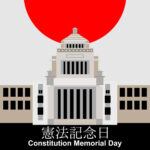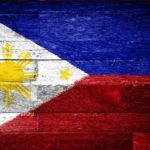In memory of the fateful day and of those who lost their lives, Hiroshima Day is observed yearly on August 6. The observance serves as a reminder of the day when a nuclear weapon was used during an armed conflict between the United States and Japan, and the lives that were lost when an entire city was razed to the ground. Little did they know that the effects of the atomic bomb that was dropped by the U.S. on the city of Hiroshima, Japan in 1945 would be felt by the next generations of Japanese as well. There was a large-scale loss of infrastructure, and a large number of people continued to die years after the incident.
History of Hiroshima Day
The bomb was dropped over the cities of Hiroshima and Nagasaki in the final year of World War II by the United States. The first bomb was dropped on Hiroshima on August 6, 1945, and after three days, the second bomb was dropped on Nagasaki on August 9, 1945. The bombings killed between 129,000 and 226,000 people and destroyed the infrastructure of both cities. The Allied leaders had demanded the unconditional surrender of the Imperial Japanese armed forces. While the Japanese were presented with an ultimatum upon not abiding by the demands, there was no mention of atomic bombardment. The Japanese government rejected the demand.
On August 6, 1945, a modified B-29 dropped a uranium gun-type bomb, named ‘Little Boy,’ on Hiroshima. Three days later another B-29 dropped a plutonium implosion bomb, named ‘Fat Man,’ on Nagasaki. Reports say that approximately 70,000 to 80,000 people were killed immediately by the blast and resultant firestorm, and a similar number of people were injured in Hiroshima. Months after the bombing, more lives were lost due to the effects of bombings in both cities.
Along with the lives lost and people injured, there was massive structural damage too. The Japanese officials stated that around 70 percent of the buildings in Hiroshima were destroyed. Left with no choice, Japan surrendered to the Allies on August 15. The instrument of surrender was signed on September 2 in Tokyo Bay. This signaled the end of World War II. However, the residents of Hiroshima continued to suffer health problems years after due to long-term radiation exposure.
Hiroshima Day timeline
The Second World War breaks out.
Germany takes Paris and France capitulates 11 days later.
Japan attacks Pearl Harbor, starting a war with the U.S.
The Nazis surrender themselves to the Allied Forces.
Hiroshima Day FAQs
Why do we celebrate Hiroshima Day?
This day is a reminder of the bombing attack on Hiroshima by the United States during World War II. Hiroshima Day is to promote peace politics against the war.
What is Nagasaki Day?
On August 9, 1945, the U.S. dropped the second nuclear bomb on Nagasaki, three days after Hiroshima was destroyed by the first one.
Why did the U.S. bomb Japan twice?
America probably deployed the plutonium bomb on Nagasaki to make clear the strength of its nuclear arsenal to ensure the nation’s supremacy in the global power hierarchy.
How To Observe Hiroshima Day
Partake in a rally
Anti-war and anti-nuclear weapon rallies are often organized on Hiroshima Day. You can attend one in your city to learn more about the disastrous effects of war.
Attend a memorial
Your local Japanese community might be organizing a memorial on Hiroshima Day. You can attend a memorial to pay respects to the victims and their families.
Read about the event
If you are not well versed with the history of World War II and the Hiroshima bombings, you could read books, archives, and newspaper reports on the same.
5 Fascinating Facts About Japan
The Japanese love their pets
There are more pets in Japan than there are people.
It’s good manners to slurp your noodles
The louder the slurping of your noodles, the tastier it is considered to be.
The number four is considered unlucky
The number four (‘shi’) is thought unlucky since it sounds too similar to the Japanese word for death.
Japanese trains are very punctual
The average delay of Japanese trains is 18 seconds.
It has the world’s largest seafood market
The world’s largest seafood market is the Tsukiji fish market in Tokyo.
Why We Observe Hiroshima Day
It’s a part of our history
Hiroshima Day is remembered as one of the deadliest days in recent history. The loss of life and infrastructure of this day is an important part of world history.
It teaches us to be anti-war
Wars don’t just drain a country of its wealth and resources, they also snatch human life and destabilize the country. Hiroshima Day is a good day to remember the disastrous effects of wars and urge our governments to take an anti-war stance.
It hopes for a peaceful future
Despite the immense loss to life and property, Hiroshima Day is observed with the hope that such an incident will not be repeated ever again. The day encourages us to work towards an inclusive and peaceful future.
Hiroshima Day dates
| Year | Date | Day |
|---|---|---|
| 2025 | August 6 | Wednesday |
| 2026 | August 6 | Thursday |
| 2027 | August 6 | Friday |
| 2028 | August 6 | Sunday |
| 2029 | August 6 | Monday |


















